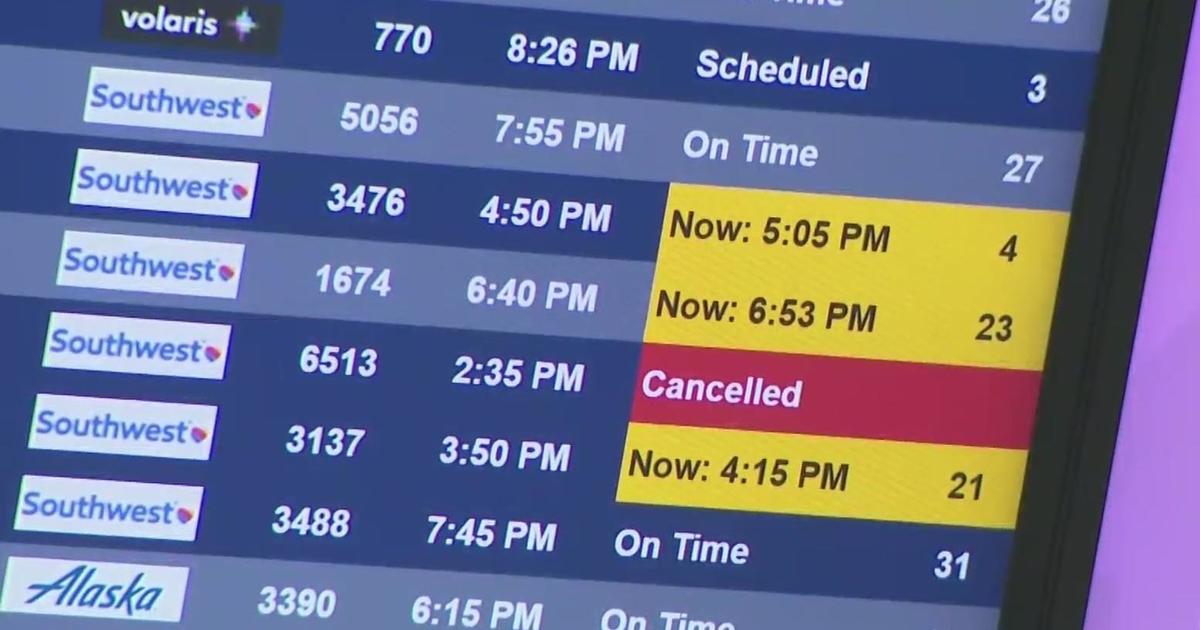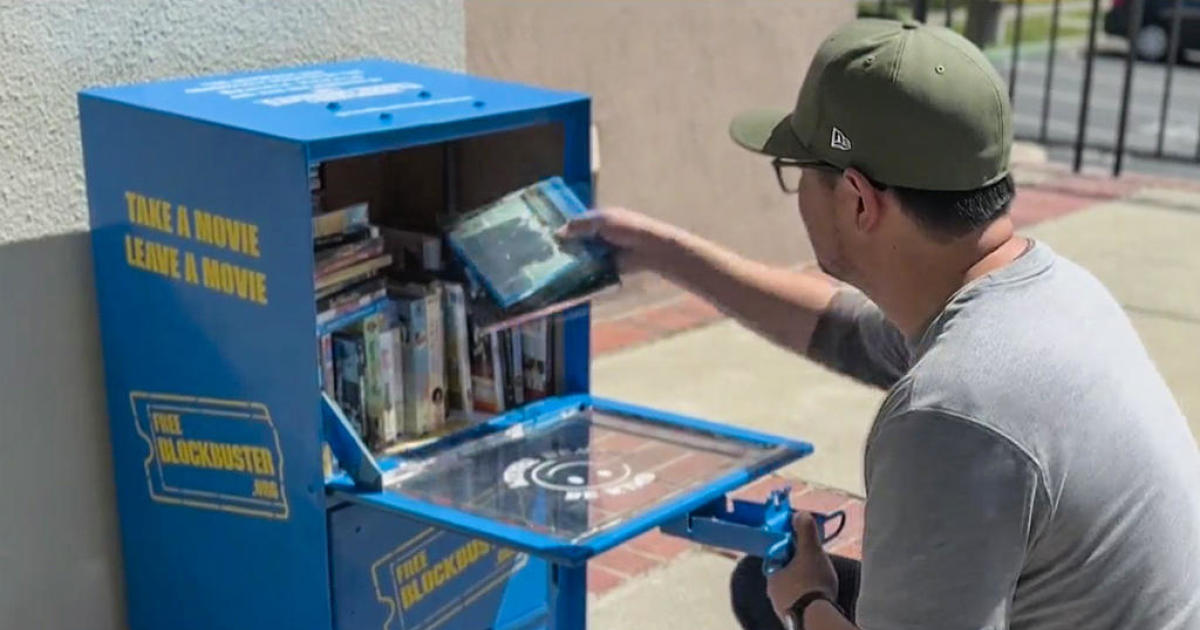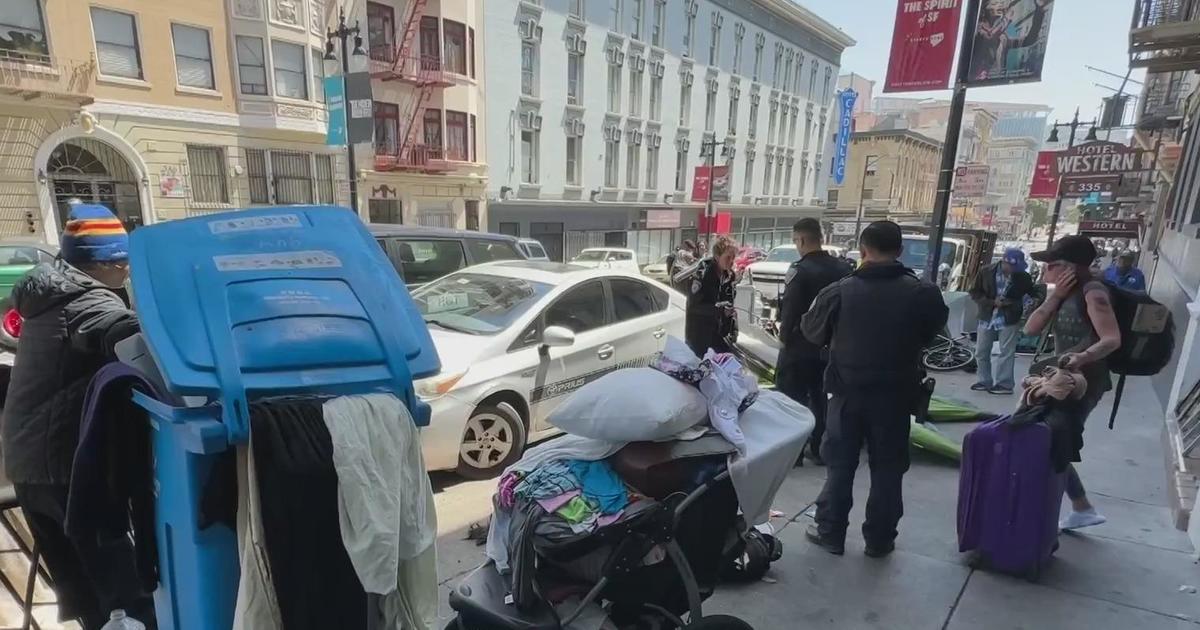ConsumerWatch: Lawsuit Sometimes The Only Answer In Insurance Dispute
CAPITOLA (CBS 5) - Some Capitola small business owners recently found out how hard it is to resolve a claim dispute with an insurance provider when they saw their requests denied after the March floods.
The floods literally washed away David Ross' chance at his dream: to franchise his popular Carousel Taffy store. All hope was lost when his Allied Insurance claim was denied. All of Ross' savings have now gone into repairing flood damage to his store.
"It basically broke my back, emotionally and financially," Ross said.
And Ross was not alone. Allied also denied a claim from Tom Austin of Kinkade Gallery.
Austin said that his family had been paying Allied $7,000 a year for 30 years only to have their first claim denied.
Policy lawyer, Gerry Mannion and insurance advocate Amy Bach reviewed both of the men's policies with ConsumerWatch. Allied is a subsidiary of Fortune 500 company, Nationwide.
On the first instance, Allied denied the claims stating the damage was due to "surface water," a policy exclusion.
However, Federal Emergency Management Agency-contracted engineers pointed out that the surface water was caused by a broken pipe. Damage due to pipe failure, Mannion said, is a covered claim.
But when the Kinkade Gallery reminded Allied about the "drain water damage" coverage in their policy, Allied issued a second denial. Allied cited, what experts say is an obscure clause that limits coverage 10 days before or after a flood.
"(That is) when you are most likely to have this exact loss," Mannion said.
He also added that, in his 34 years of experience, he's never seen coverage that limits drain pipe damage before a flood, since drain damage is likely to cause a flood.
"That's the perfect example of hidden fine print legalese exclusion," he said.
Bach points out that in order to enforce an unexpected clause, Allied, or any other insurer for that matter, would have to prove it made it clear to the policy holder what the clause meant.
ConsumerWatch brought this to Allied's attention. In their policy it stated it "will not pay for…damage…from sewer back up or sump pump overflow," and excludes drain pipes.
Engineer reports and weather data which experts claim establish the flood was a result of the broken drain pipe were given to Allied. Allied still remained firm on their denial decision.
Mannion said "from a practical standpoint, the only thing you can do is sue them."
And suing seems to be Ross' only option. If he does not sue, he is out of options. He has hired a lawyer on contingency, which is what insurance advocates recommend in this type of situation. Experts recommend, however, that your representation is a policy-holder lawyer.
Below is Allied's full response:
Allied Insurance makes its claim decisions based upon the facts specific to each loss and the policies of each of the policyholders.
The policyholders that suffered damage in the Capitola floods of March 2011 have not authorized Allied to comment on their claims, their coverage or the circumstances of their losses. Disclosure of that information is a violation of the insured's privacy rights. Allied will not speculate about or guess the circumstances of the handling of claims by other insurers.
Insurance policies are contracts, with similar and differing terms. The policy holder is responsible for deciding their circumstances and purchasing the insurance that they need. Sometimes policyholders buy policies that cover damage caused by flood, or by earthquake, or by tornado, or by hurricane, or by the negligent acts of others, or by any combination of risks—sometimes they do not.
Allied offers flood insurance in conjunction with and subsidized by the Federal Government. However, no one mandates that the policyholder purchase this or any other coverage—and frequently policyholders do not purchase the insurance they may need.
Allied's policy provisions must be approved by California's Insurance Commissioner and Department before being offered and sold to Californians.
The facts of the loss do not support the assertion that the cause of the flood was the "mechanical failure of a pipe." Allied will continue to consider relevant facts and relevant professional reports and conclusions regarding the Capitola flood claims.
of the ConsumerWatch Insurance series saw just how inconsistent insurance responses can be for one disaster. One woman had an insurance policy that paid out, while the other didn't. Luckily, the woman whose insurance company denied her claim got a happy ending when the company decided to reconsider its decision after a ConsumerWatch investigation.
Part 2 of the series tells the stories of two Capitola business owners who learned about policy inconsistencies the hard way. As some experts say, sometimes the only way to beat an insurance company is to sue them.
The Capitola floods literally washed away David Ross' chance at his dream: to franchise his popular Carousel Taffy store. All hope was lost when his Allied Insurance claim was denied. All of Ross' savings have now gone into repairing flood damage to his store.
"It basically broke my back, emotionally and financially," Ross said.
And Ross was not alone. Allied also denied a claim from Tom Austin of Kinkade Gallery.
Austin said that his family had been paying Allied $7,000 a year for 30 years only to have their first claim denied.
Policy lawyer, Gerry Mannion and insurance advocate Amy Bach reviewed both of the men's policies with ConsumerWatch.
Allied is a subsidiary of Fortune 500 company, Nationwide.
"Nationwide whose on your side? Not in this instance," Mannion said.
On the first instance, Allied denied the claims stating the damage was due to "surface water," a policy exclusion.
However, Federal Emergency Management Agency-contracted engineers pointed out that the surface water was caused by a broken pipe. Damage due to pipe failure, Mannion said, is a covered claim.
But when the Kinkade Gallery reminded Allied about the "drain water damage" coverage in their policy, Allied issued a second denial. Allied cited, what experts say, is an obscure clause that limits coverage 10 days before or after a flood.
"(That is) when you are most likely to have this exact loss," Mannion said.
He also added that in his 34 years of experience, he's never seen coverage that limits drain pipe damage before a flood, since drain damage is likely to cause a flood. "That's the perfect example of hidden fine print legalese exclusion," he said.
Bach points out that in order to enforce an unexpected clause, Allied, or any other insurer for that matter would have to prove it made it clear to the policy holder what the clause meant.
ConsumerWatch brought this to Allied's attention. In their policy it stated it "will not pay for…damage…from sewer back up or sump pump overflow" and excludes drain pipes.
Engineer reports and weather data which experts claim establish the flood was a result of the broken drain pipe were given to Allied. Allied still remained firm on their denial decision.
Mannion said "from a practical standpoint, the only thing you can do is sue them."
And suing seems to be Ross' only option; if he does not sue, he is out of options. He has hired a lawyer on contingency, which is what insurance advocates recommend in this type of situation. Experts recommend, however, that your representation is a policy-holder lawyer.
Tomorrow, Part 3 of the series takes a closer look at FEMA's flood policy and how they determine how much to pay out.
Below is Allied's full response:
Allied Insurance makes its claim decisions based upon the facts specific to each loss and the policies of each of the policyholders.
The policyholders that suffered damage in the Capitola floods of March 2011 have not authorized Allied to comment on their claims, their coverage or the circumstances of their losses. Disclosure of that information is a violation of the insured's privacy rights. Allied will not speculate about or guess the circumstances of the handling of claims by other insurers.
Insurance policies are contracts, with similar and differing terms. The policy holder is responsible for deciding their circumstances and purchasing the insurance that they need. Sometimes policyholders buy policies that cover damage caused by flood, or by earthquake, or by tornado, or by hurricane, or by the negligent acts of others, or by any combination of risks—sometimes they do not.
Allied offers flood insurance in conjunction with and subsidized by the Federal Government. However, no one mandates that the policyholder purchase this or any other coverage—and frequently policyholders do not purchase the insurance they may need.
Allied's policy provisions must be approved by California's Insurance Commissioner and Department before being offered and sold to Californians.
The facts of the loss do not support the assertion that the cause of the flood was the "mechanical failure of a pipe." Allied will continue to consider relevant facts and relevant professional reports and conclusions regarding the Capitola flood claims.
(Copyright 2011 by CBS SF. All Rights Reserved. This material may not be published, broadcast, rewritten, or redistributed.)



